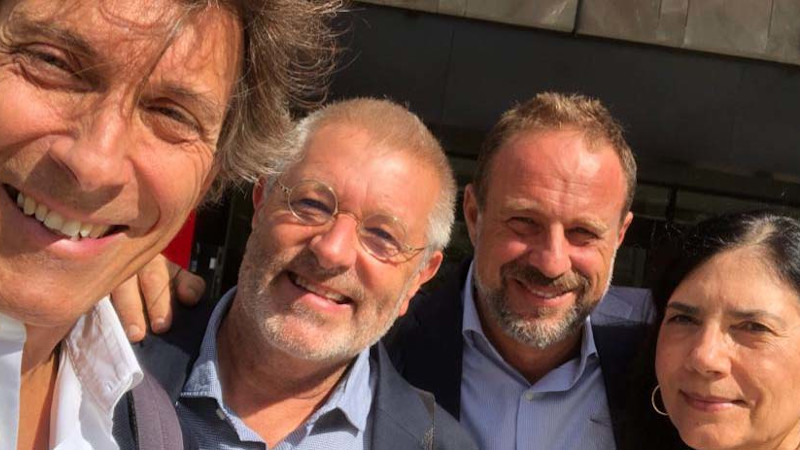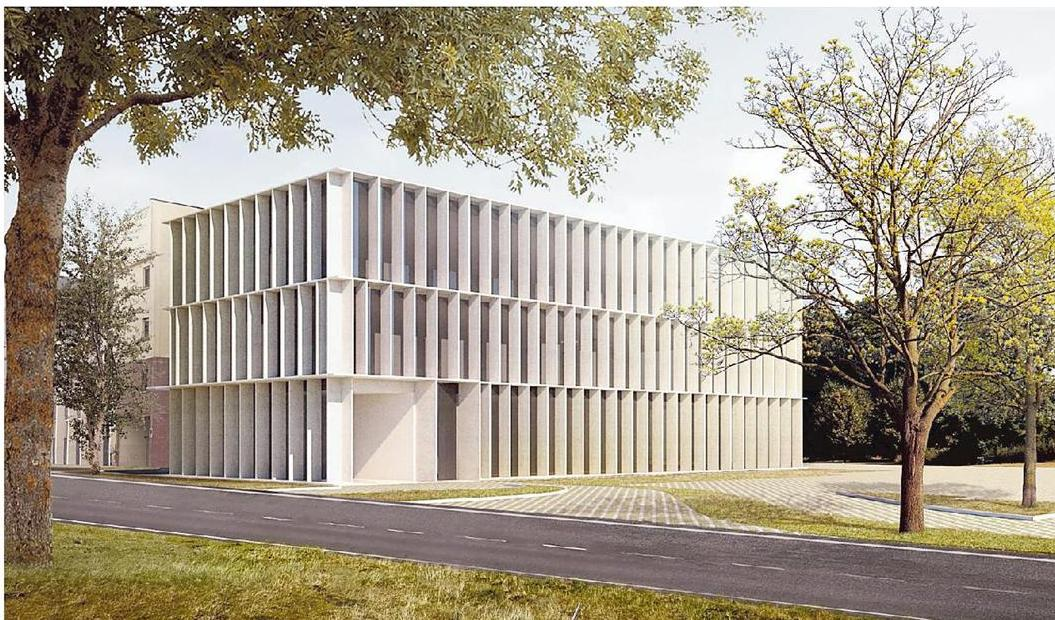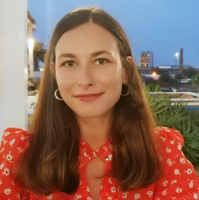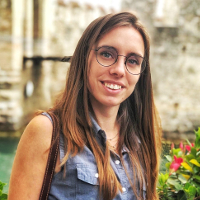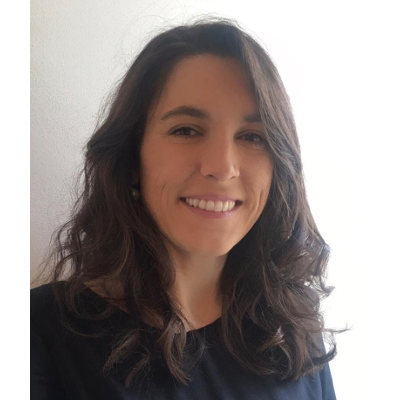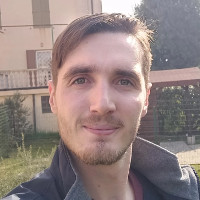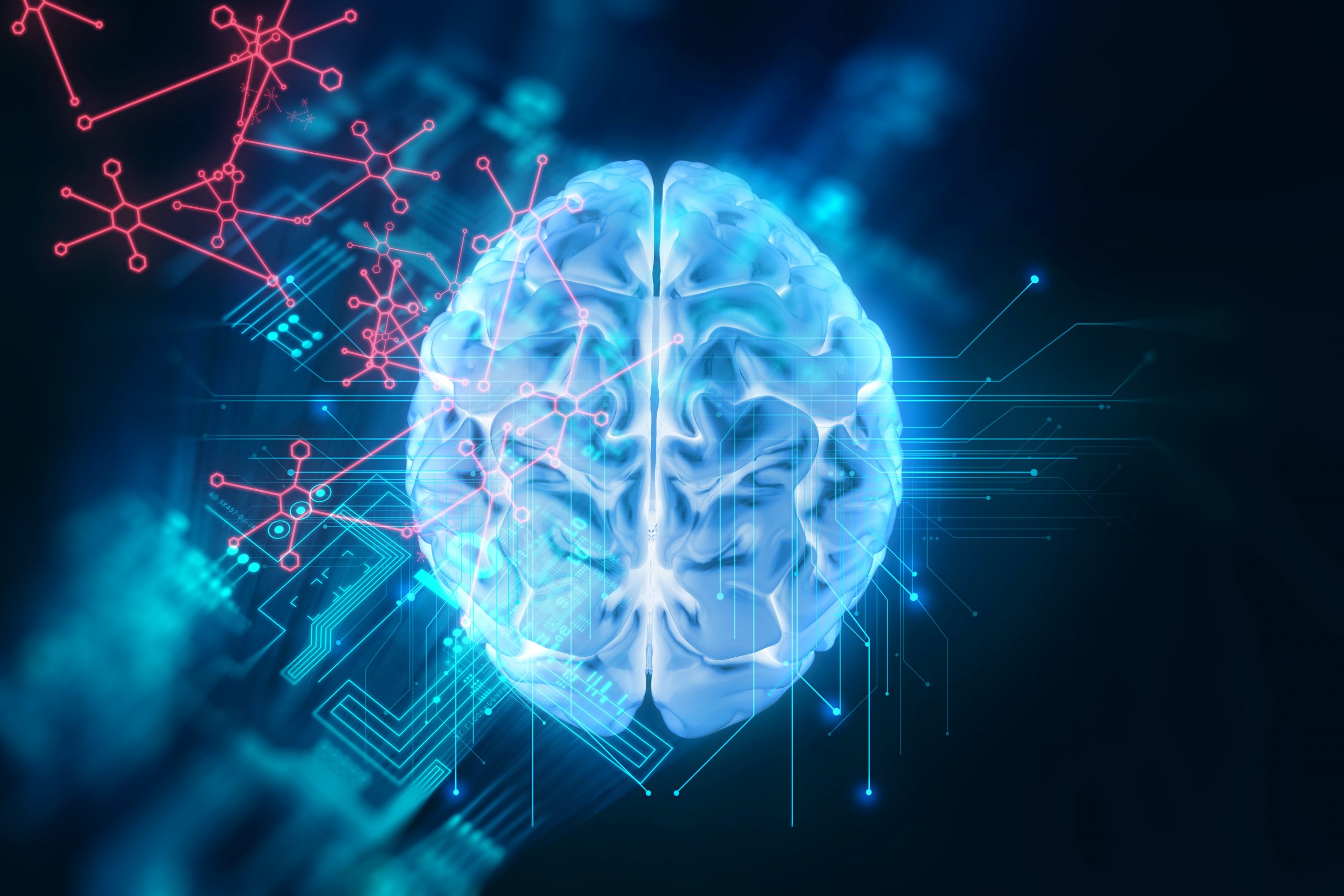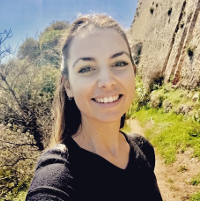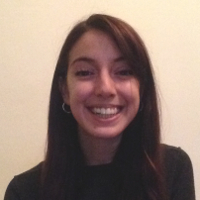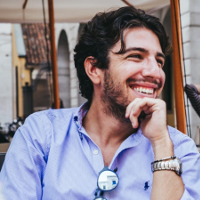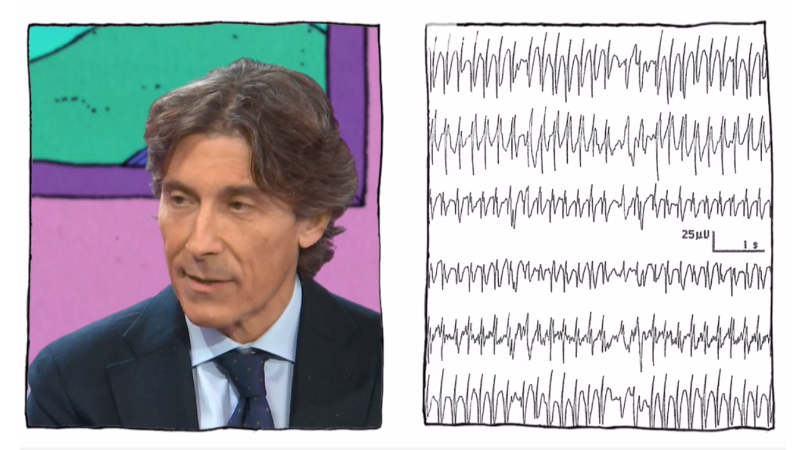| PNC Seminar |
Marco Mainardi, Dept. of Biomedical Sciences (UNIPD) |
TBA |
2025/01/30 h. 15:00 |
TBA |
| PNC Seminar |
Francesco Vespignani, Dept. of Developmental Psychology and Socialisation (UNIPD) |
TBA |
2024/11/28 h. 15:00 |
TBA |
| PNC Seminar |
Filippo Pisano, Dept. of Physics and Astronomy (UNIPD) |
TBA |
2024/11/14 h. 15:00 |
TBA |
| PNC Seminar |
Micaela Zonta, CNR |
TBA |
2024/10/31 h. 15:00 |
Sala Seminari VIMM (Via Orus 2, Padova) |
| PNC Seminar |
Francesco Papaleo, Italian Institute of Technology, Genova |
TBA |
2024/10/17 h. 15:00 |
Sala Seminari VIMM (Via Orus 2, Padova) |
| PNC Seminar |
Letizia Mariotti, IN CNR Padova |
TBA |
2024/10/03 h. 15:00 |
Sala Seminari VIMM (Via Orus 2, Padova) |
| PNC Seminar |
Peter Zeidman, University College London |
TBA |
2024/09/27 h. 15:00 |
TBA |
| PNC Seminar |
Manuela Allegra, IN CNR Padova |
TBA |
2024/09/19 h. 15:00 |
Sala Seminari VIMM (Via Orus 2, Padova) |
| PNC Seminar |
Russell Poldrack, Stanford University |
An open ecosystem for cognitive neuroscience |
2024/09/06 h. 15:00 |
Sala Seminari VIMM (Via Orus 2, Padova) |
| PNC Seminar |
Andrea Zangrossi, Dept. of General Psychology (UNIPD) |
Oculomotor behavior and the brain: Clinical and forensic implications |
2024/07/11 h. 15:00 |
Sala Seminari VIMM
(Via Orus 2, Padova) |
| PNC Seminar |
Antonio Maffei, Dept. of Developmental Psychology and Socialisation (UNIPD) |
The social side of emotional regulation: Psychophysiological implications |
2024/06/27 h. 15:00 |
Aula 2C-Psico2 (Via Venezia 12, Padova) |
| PNC Editorial Seminar for PhD students and post-doc fellows |
Elena Becker-Barroso, The Lancet Neurology |
Preparing for your scientific career: The relevance of publishing |
2024/06/06 h. 14:30 |
Sala Seminari VIMM
(Via Orus 2, Padova) |
| PNC Seminar |
Alessandro Farnè, Lyon Neuroscience Research Center, France |
Humans embody tools to use them like hands. How’s that? |
2024/05/23 h. 15:00 |
Aula 2C-Psico2 (Via Venezia 12, Padova) |
| PNC Distinguished Lecture |
Pascal Fries, Max Planck Institute for Biological Cybernetics, Tübingen, Germany |
Brain rhythms for bottom-up and top-down signaling |
2024/05/16
h. 15:00 |
Sala Seminari VIMM
(Via Orus 2, Padova)
Mediaspace Recording |
| PNC Distinguished Lecture |
Stan Dehaene, IINSERM Unit 562 “Cognitive Neuroimaging” & Collège de France |
Understanding the neural code for symbols and languages: A challenge for human cognitive neuroscience |
2024/05/02 h. 15:00 |
Sala Seminari VIMM (Via Orus 2, Padova)
Mediaspace Recording |
| PNC Seminar |
Arianna Menardi, Dept. of. Neurosciences (UNIPD) |
Interindividual differences in the functional connectome at rest: From personalized approaches to biomarkers of cognitive fitness |
2024/11/04 h. 15:00 |
Sala Seminari VIMM
(Via Orus 2, Padova) |
Clinica Neurologica-PNC co-hosted Seminar
(Martedì della Clinica Neurologica 2024) |
Patrick Chinnery |
New frontiers for mitochondrial medicine |
2024/04/09 h. 17:30 |
Aula Magna Clinica Neurologica |
| PNC Seminar |
Lorenzo Pini, Dept. of. Neurosciences (UNIPD) |
Brain connectivity in neurological diseases: A network story |
2024/03/28 h. 15:00 |
Sala Seminari VIMM
(Via Orus 2, Padova) |
Clinica Neurologica-PNC co-hosted Seminar
(Martedì della Clinica Neurologica 2024) |
Roberto Mai |
Epilessia del lobo temporale |
2024/03/26 h. 17:30 |
Aula Magna Clinica Neurologica |
Clinica Neurologica-PNC co-hosted Seminar
(Martedì della Clinica Neurologica 2024) |
Antonino Vallesi, Dept. of. Neurosciences (UNIPD) |
Funzioni dei lobi frontali: dallo studio di lesioni focali alla connettomica |
2024/03/19 h. 17:30 |
Aula Magna Clinica Neurologica |
Math-PNC co-hosted Seminar
(Matematica e Cervello) |
Alessandra Bertoldo, Dept. of Information Engineering (UNIPD) |
Multimodal Brain Connectivity: An integrative view |
2024/01/14 h. 17:30 |
Room 1A150, Torre Archimede |
Clinica Neurologica-PNC co-hosted Seminar
(Martedì della Clinica Neurologica 2024) |
Alberto Priori |
Moderne tecniche di neuromodulazione |
2024/03/12 h. 17:30 |
Aula Magna Clinica Neurologica |
Clinica Neurologica-PNC co-hosted Seminar
(Martedì della Clinica Neurologica 2024) |
Nick Ward |
Recovery after stroke: present and future perspective |
2024/03/05 h. 17:30 |
Aula Magna Clinica Neurologica |
Clinica Neurologica-PNC co-hosted Seminar
(Martedì della Clinica Neurologica 2024) |
Antonio Uncini |
Nodo e paranodopatie: dieci anni dopo |
2024/02/27 h. 17:30 |
Aula Magna Clinica Neurologica |
Clinica Neurologica-PNC co-hosted Seminar
(Martedì della Clinica Neurologica 2024) |
Anna Estraneo |
Valutazione diagnostica e prognostica del disturbo di coscienza |
2024/02/20 h. 17:30 |
Aula Magna Clinica Neurologica |
| PNC Seminar |
Paola Sessa, Dept. of Developmental Psychology and Socialisation (UNIPD) |
Bridging the Gap: Integrating Facial Processing and Embodiment Research |
2024/02/15 h. 15:00 |
Sala Seminari VIMM
(Via Orus 2, Padova) |
Clinica Neurologica-PNC co-hosted Seminar
(Martedì della Clinica Neurologica 2024) |
Frank Winkler |
Cancer neuroscience of glioma and beyond |
2024/02/13 h. 17:30 |
zoom link |
Clinica Neurologica-PNC co-hosted Seminar
(Martedì della Clinica Neurologica 2024) |
Paola Perini |
Neuromielite ottica: lo spettro clinico e le prospettive terapeutiche |
2024/02/06 h. 17:30 |
Aula Magna Clinica Neurologica |
| PNC Distinguished Lecture |
Daniel Margulies, CNRS Paris, France |
Cortical gradients of functional integration |
2024/02/01 h. 15:00 |
Sala Seminari VIMM
(Via Orus 2, Padova)
Mediaspace Recording |
Clinica Neurologica-PNC co-hosted Seminar
(Martedì della Clinica Neurologica 2024) |
Alberto Benussi |
Ruolo diagnostico e terapeutico della TMS nelle malattie neurodegenerative |
2024/01/30 h. 17:30 |
Aula Magna Clinica Neurologica |
Math-PNC co-hosted Seminar
(Matematica e Cervello) |
Michele Allegra, Dept. of Physics, (UNIPD) |
Searching for low-dimensional neural manifolds |
2024/01/25 h. 17:30 |
Room 1C150, Torre Archimede |
Clinica Neurologica-PNC co-hosted Seminar
(Martedì della Clinica Neurologica 2024) |
Angelo Antonini, Dept. of. Neurosciences (UNIPD) |
La diagnosi e la terapia della malattia di Parkinson nel terzo millennio |
2024/01/23 h. 17:30 |
Aula Magna Clinica Neurologica |
Clinica Neurologica-PNC co-hosted Seminar
(Martedì della Clinica Neurologica 2024) |
Massimo Cacciari, Università San Raffaele (Milano)
Maurizio Corbetta, Dept. of Neurosciences (UNIPD)
Mauro Conti, Dept. of Mathematics (UNIPD) |
Intelligenza Artificiale (IA), Etica e Cybersecurity: Un sistema di IA può essere etico e sicuro? |
2024/01/16 h. 17:30 |
Aula Magna Clinica Neurologica |
| PNC Seminar |
Dr. Enrico Collantoni, Dept. of Neurosciences (UNIPD) |
Integrating Neurobiology, Cognition, and Behavior in Anorexia Nervosa: A Comprehensive Perspective in Clinical and Research Contexts |
2023/12/14 h. 15:00 |
Sala Seminari VIMM
(Via Orus 2, Padova) |
| PNC Seminar |
Dr. Davide Momi (Whole Brain Modelling Group, Krembil Centre for Neuroinformatics – CAMH, Toronto, Canada) |
Modelling of brain stimulation to unveil signal propagation and network dynamics |
2023/12/13 h. 14:45 |
Sala Seminari VIMM
(Via Orus 2, Padova) |
| PNC Seminar |
Dr. Loren Koçillari, Istituto Italiano di Tecnologia – IIT, Trento, and
Universitätsklinikum Hamburg Eppendorf |
Measuring synergistic and redundant interactions among functionally connected neurons in the mouse auditory cortex during a sound discrimination task |
2023/11/06 h. 16:30 |
Sala Seminari VIMM
(Via Orus 2, Padova) |
| PNC Seminar |
Prof. Paolo Bonato, Dept. of Physical Medicine and Rehabilitation, Harvard Medical School |
Precision Rehabilitation Interventions in Neurological Patients Undergoing Robot-Assisted Motor Training |
2023/11/02 h. 15:00 |
Sala Seminari VIMM
(Via Orus 2, Padova) |
| PNC Seminar |
Prof. Valter Tucci, Italian Institute of Technology, Genova |
Sleep biology: monoallelic expression, genetic noise and the development of a novel CRISPR-based epigenetic writer |
2023/10/19 h. 15:00 |
Sala Seminari VIMM
(Via Orus 2, Padova) |
| PNC Distinguished Lecture |
Prof. Larry Abbott, Columbia University, USA |
Modeling the Navigational Circuitry of the Fly |
2023/09/28 h. 15:00 |
Aula Magna “Lepschy” (Via Gradenigo 6B, Building DEI/D, 1st floor) |
| PNC Seminar |
Prof. Camillo Porcaro, Dept. of Neurosciences (UNIPD) |
Characterisation of Brain Dynamics at Rest by Fractal Dimension |
2023/09/21 h. 15:00 |
Aula Magna Clinica Neurologica
(Via Giustiniani 5, Padova) |
| PNC Seminar |
Prof. Andrea Serino, University Hospital of Lausanne – CHUV |
Peripersonal space (PPS) as an interface for self-environment interactions |
2023/07/06 h. 15:00 |
Aula Magna Ederle
(Via Belzoni 160) |
| PNC Distinguished Lecture |
Prof. Michela Fagiolini, Harvard Medical School & Boston Children’s Hospital, USA |
Circuit dissection in neurodevelopmental disorders from mouse to human |
2023/06/29 h. 15:00 |
Sala Seminari VIMM
(Via Orus 2, Padova) |
| PNC Seminar |
Prof. Ben Harvey, Utrecht University |
Revealing mechanisms of sensory and cognitive processing with ultra-high field fMRI |
2023/06/22 h. 15:00 |
Aula T2-CLA
(Via Venezia 16, Padova) |
Clinica Neurologica-PNC co-hosted Seminar
(Martedì della Clinica Neurologica 2023) |
Prof. Silvia Daniela Morbelli, IRCCS Ospedale Policlinico San Martino Genova |
Imaging nucleare nelle patologie neurodegenerative |
2023/06/06 h. 16:00 |
Aula Magna Clinica Neurologica |
Clinica Neurologica-PNC co-hosted Seminar
(Martedì della Clinica Neurologica 2023) |
Prof. Chiara Briani, Università degli Studi di Padova |
Gammopatie monoclonali di significato neurologico |
2023/05/30 h. 16:00 |
Aula Magna Clinica Neurologica |
Clinica Neurologica-PNC co-hosted Seminar
(Martedì della Clinica Neurologica 2023) |
Dr. Inigo Gabilondo Cuéllar, Biocruces Bizkaia Health Research Institut Bilbao |
The retina as a biomarker of brain diseases |
2023/05/23 h. 16:00 |
Aula Magna Clinica Neurologica |
Clinica Neurologica-PNC co-hosted Seminar
(Martedì della Clinica Neurologica 2023) |
Prof. Massimo Filippi, IRCCS Ospedale San Raffaele di Milano |
Nuove frontiere di neuroimaging predittivo |
2023/05/18 h. 16:00 |
Aula Magna Clinica Neurologica |
Clinica Neurologica-PNC co-hosted Seminar
(Martedì della Clinica Neurologica 2023) |
Dr. Marialuisa Zedde, Arcispedale Santa Maria Nuova di Reggio Emilia, and Dr. Rosario Pascarella, Struttura Semplice Dipartimentale
di Neuroradiologia di Reggio Emilia |
Angiopatia amiloide: cosa sappiamo e cosa non sappiamo |
2023/05/16 h. 16:00 |
Aula Magna Clinica Neurologica |
Clinica Neurologica-PNC co-hosted Seminar
(Martedì della Clinica Neurologica 2023) |
Dr. Renato Emilio Mantegazza, Istituto Neurologico C. Besta di Milano |
Nuove terapie nella miastenia gravis |
2023/05/09 h. 16:00 |
Aula Magna Clinica Neurologica |
Clinica Neurologica-PNC co-hosted Seminar
(Martedì della Clinica Neurologica 2023) |
Prof. Maurizio Fornari, IRCCS Humanitas Milano |
Mielopatie cervicali |
2023/05/02 h. 16:00 |
Aula Magna Clinica Neurologica |
Clinica Neurologica-PNC co-hosted Seminar
(Martedì della Clinica Neurologica 2023) |
Prof. Pieter A Van Doorn, University Medical Center Rotterdam |
Guidelines for the diagnosis of Guillain-Barrè |
2023/04/18 h. 16:00 |
Aula Magna Clinica Neurologica |
Clinica Neurologica-PNC co-hosted Seminar
(Martedì della Clinica Neurologica 2023) |
Prof. Cristina Tassorelli, Università degli Studi di Pavia |
Update sull’emicrania |
2023/03/11 h. 16:00 |
Aula Magna Clinica Neurologica |
Clinica Neurologica-PNC co-hosted Seminar
(Martedì della Clinica Neurologica 2023) |
Prof. Stefano Meletti, Università di Modena e Reggio Emilia |
Mioclono nelle epilessie |
2023/04/04 h. 16:00 |
Aula Magna Clinica Neurologica |
| PNC Seminar |
Prof. Giovanna Citti, Università degli Studi di Bologna |
A geometric model of hand area of the the motor cortex |
2023/03/23 h. 15:00 |
Sala Seminari VIMM |
Clinica Neurologica-PNC co-hosted Seminar
(Martedì della Clinica Neurologica 2023) |
Prof. Luca Bello, Università degli Studi di Padova |
Correlazioni genotipo-fenotipo nelle distrofinopatie |
2023/03/21 h. 16:00 |
Aula Magna Clinica Neurologica |
Clinica Neurologica-PNC co-hosted Seminar
(Martedì della Clinica Neurologica 2023) |
Prof. Giancarlo Logroscino, Università degli Studi di Bari |
Epidemiologia della degenerazione lobare frontotemporale |
2023/03/14 h. 16:00 |
Aula Magna Clinica Neurologica |
Clinica Neurologica-PNC co-hosted Seminar
(Martedì della Clinica Neurologica 2023) |
Prof. Pietro Parchi, Università degli Studi di Bologna |
RT-QuIC nelle alfa synucleinopatie |
2023/03/07 h. 16:00 |
Aula Magna Clinica Neurologica |
Clinica Neurologica-PNC co-hosted Seminar
(Martedì della Clinica Neurologica 2023) |
Dr. Filippo Dainese, Azienda Ospedale – Università di Padova |
Gestione delle farmacoresistenze in epilessia |
2023/02/28 h. 16:00 |
Aula Magna Clinica Neurologica |
Clinica Neurologica-PNC co-hosted Seminar
(Martedì della Clinica Neurologica 2023) |
Prof. Luisa Barzon, Università degli Studi di Padova |
Infezione da West Nile virus: aggiornamenti su epidemiologia, patogenesi e diagnosi |
2023/02/21 h. 16:00 |
Aula Magna Clinica Neurologica |
Clinica Neurologica-PNC co-hosted Seminar
(Martedì della Clinica Neurologica 2023) |
Prof. Elena Cattaneo, Università degli Studi di Milano |
Huntington: dal gene antico alle proposte terapeutiche |
2023/02/14 h. 16:00 |
Aula Magna Clinica Neurologica |
| Distinguished Lecture |
Prof. Massimo Grassi |
The way we were, the way we will be. Open science: a change in the scientific paradigm |
2023/01/10 h. 9:30 |
Aula Magna Clinica Neurologica
Mediaspace Recording |
| DSB-PNC’s co-hosted Seminar |
Dr. Fabrizio Lombardi |
Adaptive neural networks in resting human brain explains coexistence of avalanches and oscillations |
2022/12/01 h. 15:00 |
Sala Seminari (VIMM) |
| PNC Seminar |
Prof. Alessandro Martini |
Alfonso Corti. The discovery of the hearing organ |
2022/11/22 h. 17:00 |
Aula Morgagni (Policlinico) |
| PNC Seminar |
Dr. Simone Gastaldon |
Predictive processing in spoken language comprehension: insights from electrophysiology in typical and atypical populations |
2022/11/03 h. 15:00 |
Sala Seminari (VIMM)
Mediaspace Recording |
| DSB-PNC’s co-hosted Seminar |
Dr. Davide Bernardi @ Istituto Italiano di Tecnologia, Ferrara |
How can a single neuron influence behavior? Hints from integrate-and-fire network models |
2022/10/06 h. 15:00 |
Sala Seminari (VIMM)
Mediaspace Recording |
| DSB-PNC’s co-hosted Seminar |
Dr. Thierry Nieus @ Università degli Studi di Milano |
A novel multi-class logistic regression algorithm to reliably infer network connectivity from cell membrane potentials |
2022/10/06 h. 14:30 |
Sala Seminari (VIMM)
Mediaspace Recording |
| Distinguished Lecture |
Dr. Peter Bandettini @ NIH (United States of America) |
Challenges, opportunities, and novel findings with High Field MRI and fMRI |
2022/09/29 h. 15:00 |
Zoom
Mediaspace Recording |
| Distinguished Lecture |
Prof. Sonja Kotz @ Maastricht (Netherlands) |
‘Little brain’, big contributions – reflections on cerebellar circuitry in action, perception, and cognition |
2022/07/07 h. 15:00 |
Sala Seminari (VIMM)
Mediaspace Recording |
| Distinguished Lecture |
Dr. Michael Halassa @ MIT Boston (United Stated of America) |
Thalamic regulation of prefrontal dynamics for cognitive control |
2022/06/23 h. 15:00 |
Sala Seminari (VIMM)
Mediaspace Recording |
| Distinguished Lecture |
Prof. Nicholas Brunel @ Duke University School of Medicine (United States of America) |
From synapse to network: Models of information storage and retrieval in brain networks |
2022/06/16 h. 15:00 |
Sala Seminari (VIMM)
Mediaspace Recording |
| DSB-PNC’s co-hosted Seminar |
Prof. Marco Canossa @ CIBIO, University of Trento |
Deciphering how cortical astrocytes dynamically regulate synaptic plasticity ensuring the information storage in memory circuits |
2022/06/09 h. 15:00 |
Aula 0B, Complesso di Biomedicina, Fiore di Botta, Padova |
| PNC Seminar |
Prof. Gian Michele Ratto @ Nanoscience CNR and Scuola Normale di Pisa |
A diurnal rhythm of intracellular chloride in pyramidal neurons affects cortical dynamics and signal processing in the cortex |
2022/05/26 h. 15:00 |
Sala Seminari (VIMM)
Mediaspace Recording |
| PNC Seminar |
Dr. Andrea Benucci @ RIKEN (Japan) |
Plasticity of visual representations in the mouse cortex |
2022/04/28 h. 10:00 |
Mediaspace Recording |
| PNC Seminar |
Dr. Valentina Baro |
Advanced neuroimaging in neurosurgery |
2022/04/14 h. 15:00 |
Sala Seminari (VIMM)
Mediaspace Recording |
| DSB-PNC’s co-hosted Seminar |
Dr. Marco Mainardi @ Instituto di Neuroscienze, Centro Nazionale delle Ricerche, Pisa |
Understanding learning and memory at the single-synapse scale |
2022/03/24 h. 15:00 |
Mediaspace recording |
| PNC Seminar |
Prof. Alessandra del Felice – Prof. Emanuele Menegatti |
Bridging neuroscience and robotics: wearable robots for innovative rehabilitation and healthy ageing |
2022/03/17 h. 15:00 |
Sala Seminari (VIMM)
Mediaspace recording |
| DSB-PNC’s co-hosted Seminar |
Dr. Marco Cambiaghi @ Università di Verona |
Effects of transcranial direct current stimulation (tDCS) in the physiological and in the ischemic motor cortex in the mouse |
2022/03/10 h. 15:00 |
Zoom
Mediaspace recording |
| PNC Seminar |
Dr. Michele Allegra |
Approches to brain controllability |
2022/03/03 h. 15:00 |
Zoom
Mediaspace recording |
| PNC Seminar |
Prof. Aram Megighian |
Oculomotor responses in humans and animals |
2022/02/17 h. 15:00 |
Zoom
Mediaspace recording
|
| PNC Seminar |
Prof. Judit Gervain |
The neural architecture of early speech perception |
2022/02/03 h. 15:00 |
Zoom
|
| DSB-PNC’s co-hosted Seminar |
Dr. Paolo Bonifazi @ Biocruces Bizkaia Health Research Institute (Espaňa) |
Bridging the gap between structural and (dys)functional connectivity: a multi-scale approach |
2021/11/11 h. 15:30 |
Zoom
|
![]()
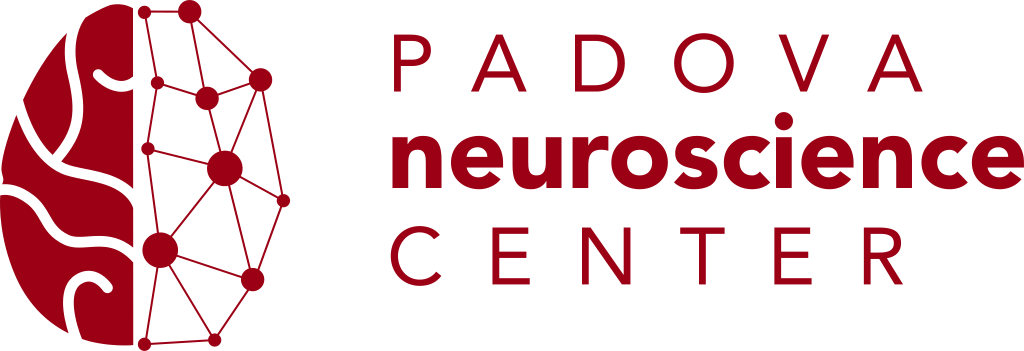
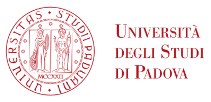
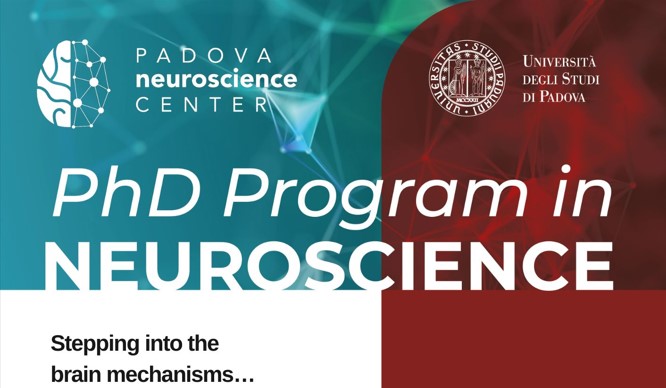
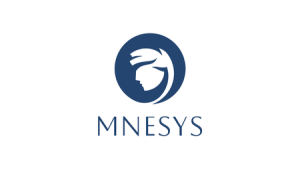


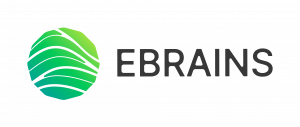

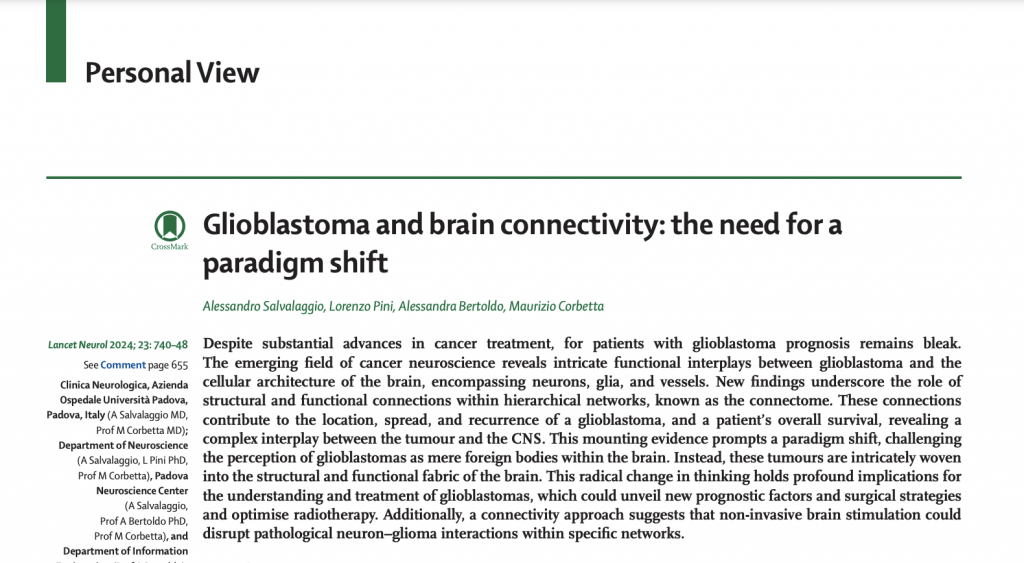
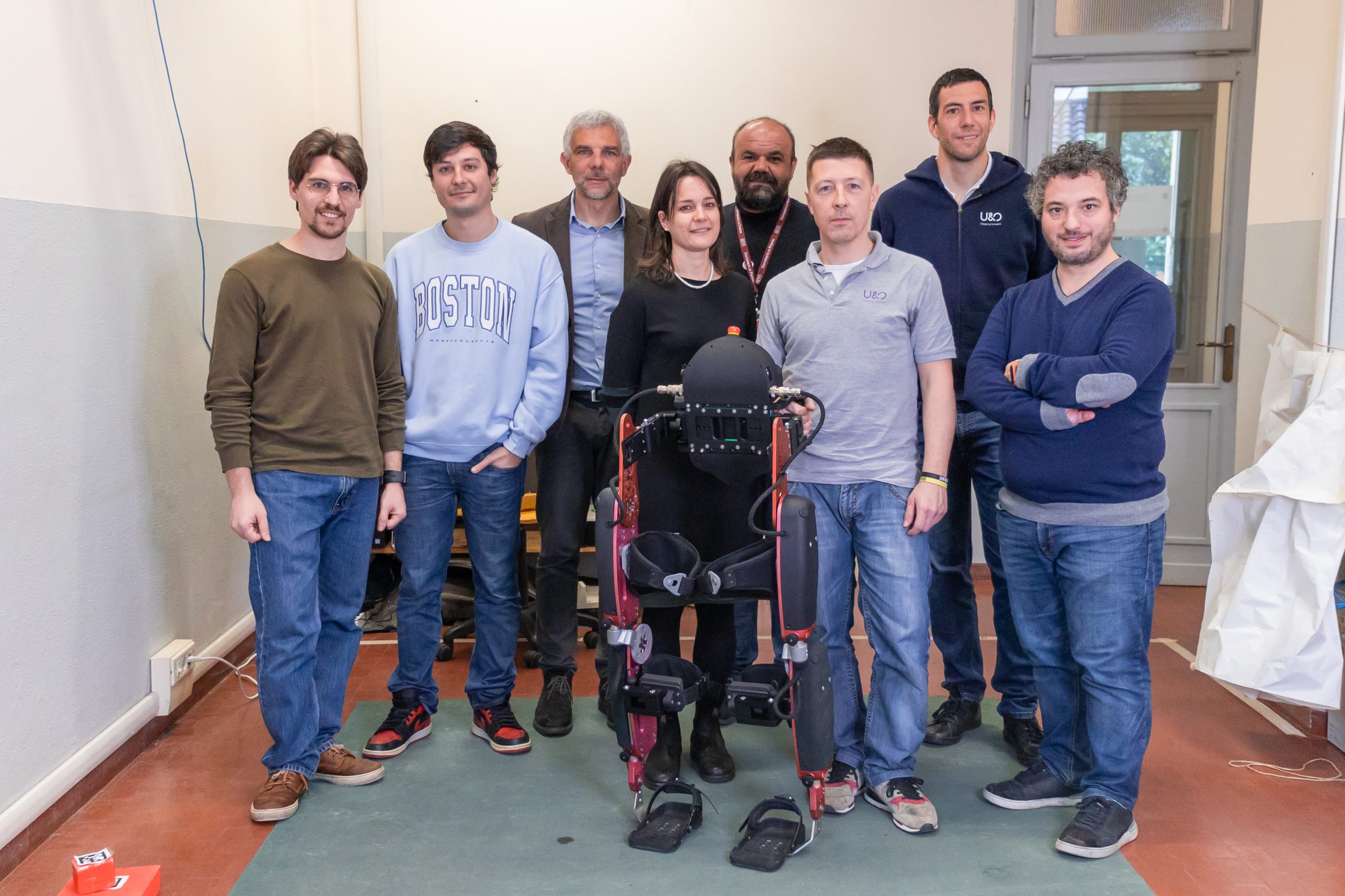



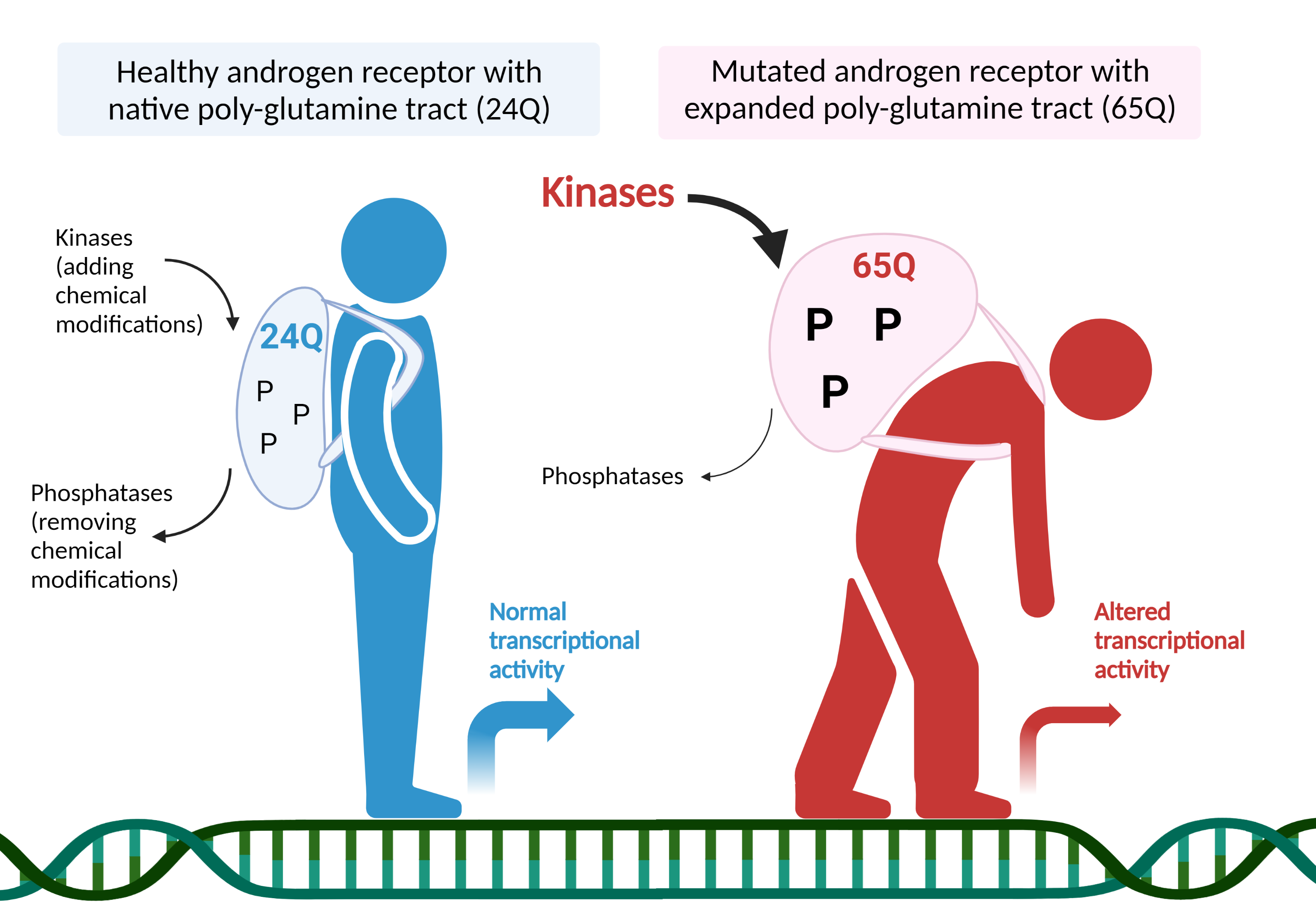
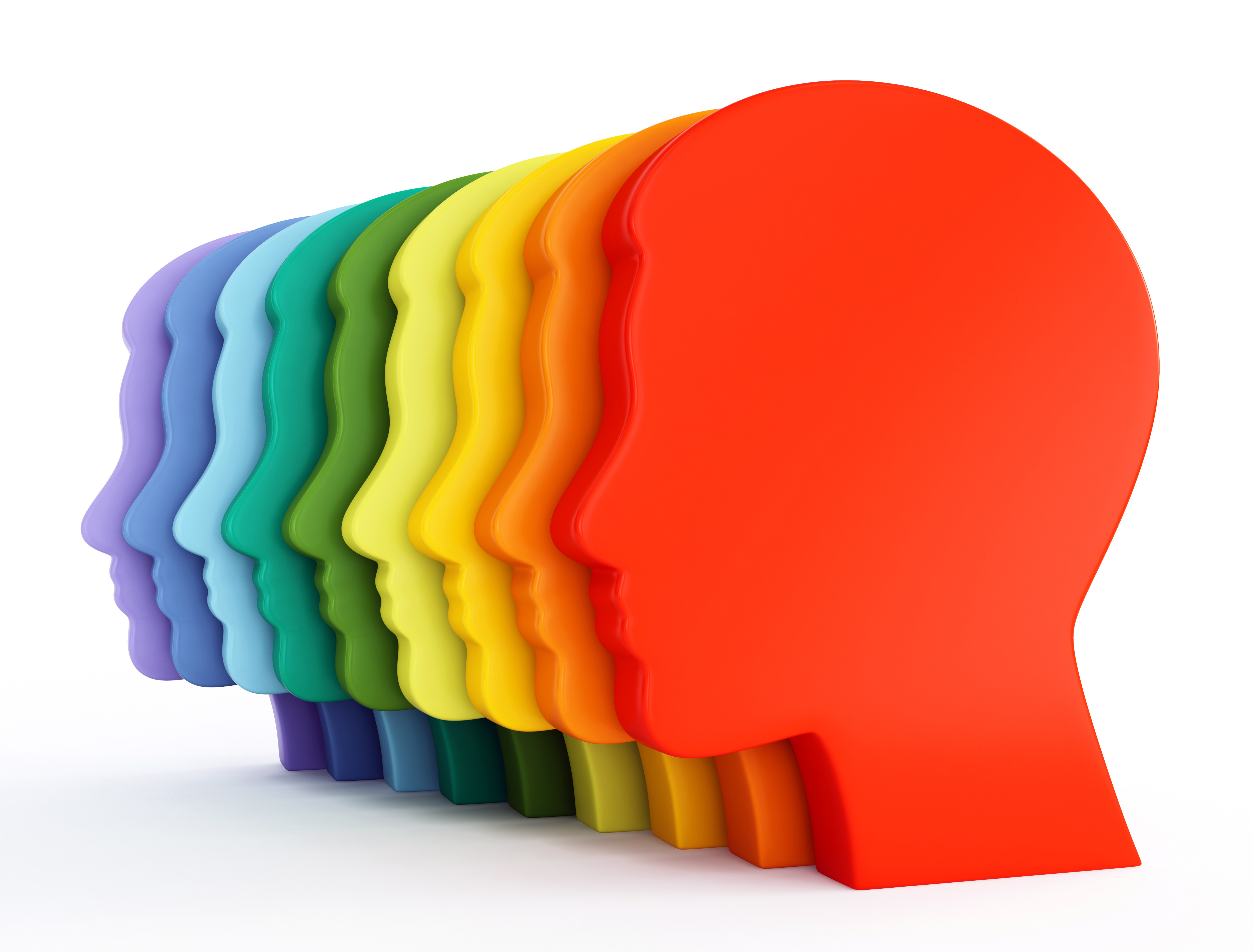
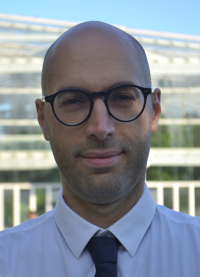 The “Padova Neuroscience Center – PNC” is glad to inform that one of our members, Alessandro Salvalaggio, has been recently awarded a “
The “Padova Neuroscience Center – PNC” is glad to inform that one of our members, Alessandro Salvalaggio, has been recently awarded a “